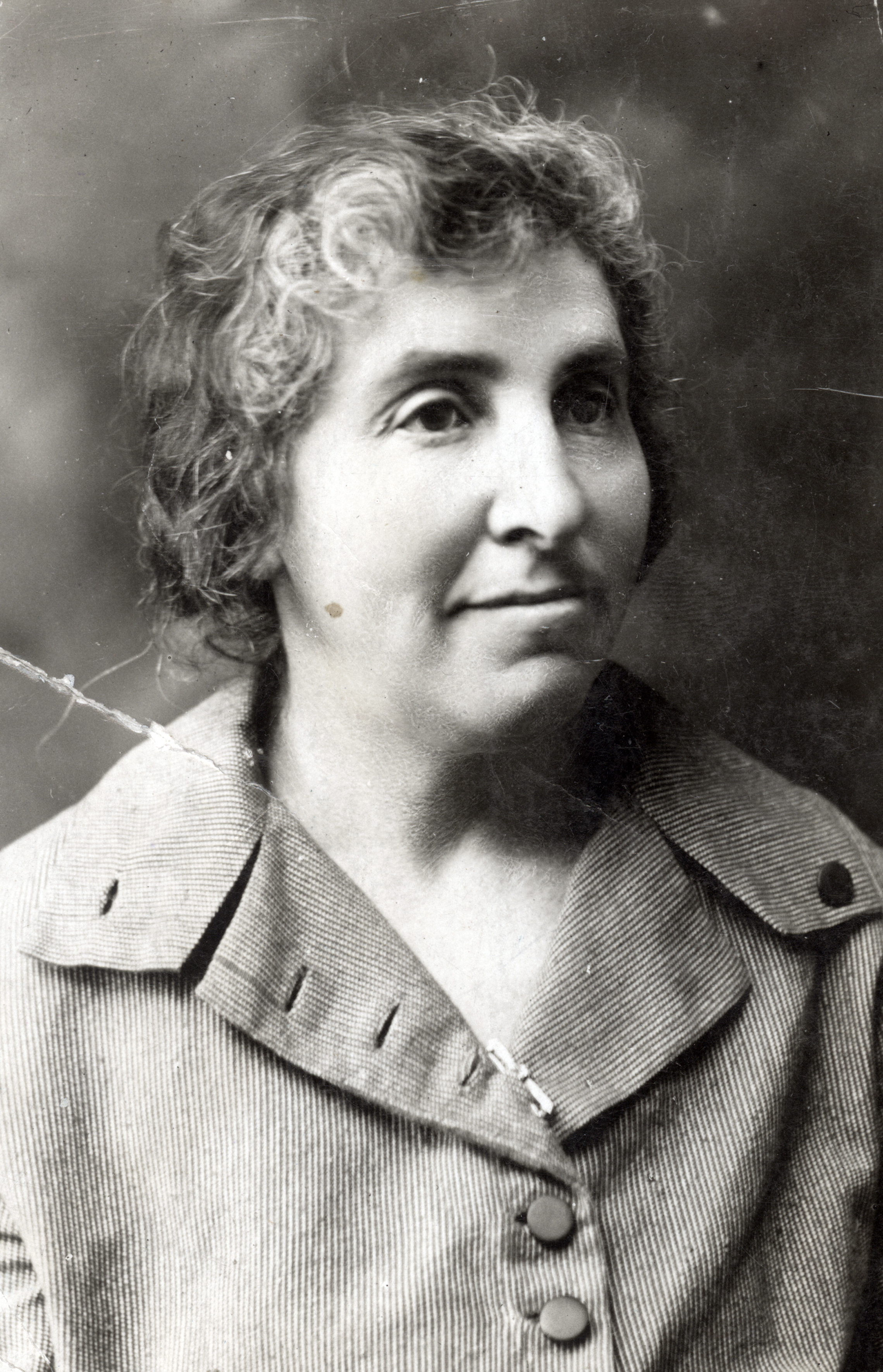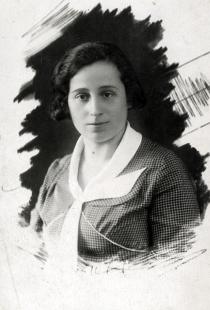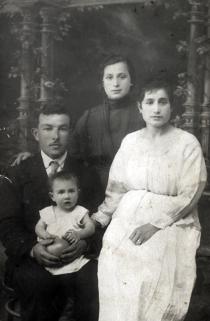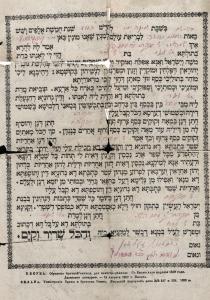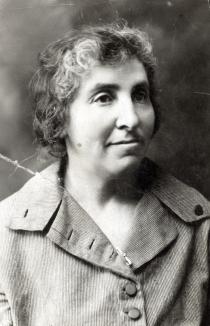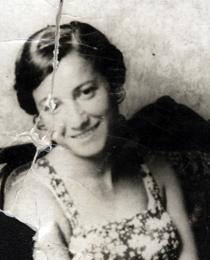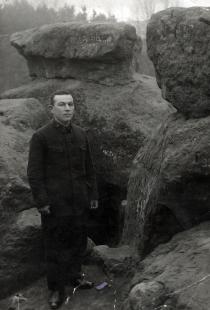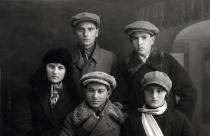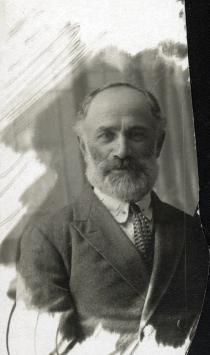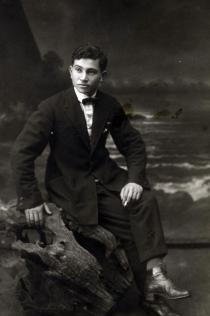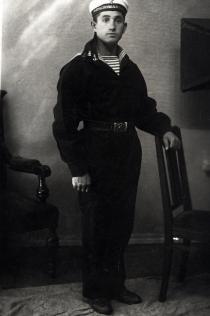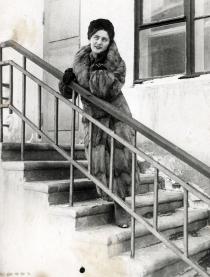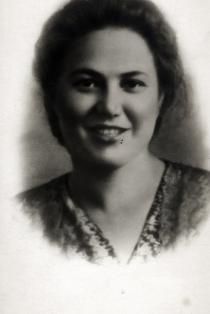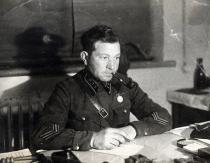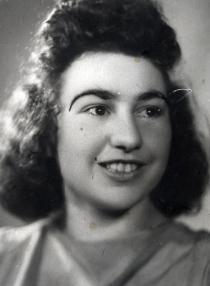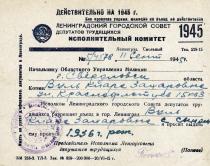My grandmother on father's side, Tamara Vladimirovna Vul.
She lost her husband early, and brought up 7 children - 3 sons and 4 daughters - all by herself. Each of them received an education. They not only finished school, but also received a vocational training, a specialty.
She lived in the Caucasus, in Vladikavkaz , and was born somewhere in the Ukraine in the 1880s. I do not know precisely, somewhere near Kiev.
I was brought to Vladikavkaz in a very young age and I thought that they always lived there. But, most likely, I was born in the small town of Smela in Cherkassk region, and my grandmother also came from that place [from Smela].
It was Kiev province earlier, but now it is Cherkassk region. Grandmother was respected by everyone in town. She was educated - she finished the Jewish school, and then received some other education, I do not remember exactly.
She was an ardent believer. She always helped the poor, in general was a wonderful person, and I loved her madly. I consulted grandmother literally on all questions. She was very clever, her advice was always reasonable. Grandmother spoke Russian.
She dressed according to her time and was always very fastidious towards her appearance. She never wore a wig, - she had a beautiful hair. She was married only once, her husband suddenly died, and she never got married again, giving all of herself to her children and grandchildren.
She didn't tell me anything about her own childhood, but mentioned, that she was brought up in a very religious Jewish family, where all Jewish holidays and laws were observed. And she required that from us.
From Grandmother's home, I undoubtedly remember Easter, Pesach. She had some sort of special sideboard, where she kept the dishes used only in the time of Pesach. These dishes were called kosher dishes. There were not only plates, but also knives, and every kind of utensils, everything to do with meals.
The holidays were celebrated literally by all the family, everybody came, and, naturally, children participated as well. They were sticking around, helped themselves to the delicious things, not quite aware of what kind of holiday it was, though grandmother used to explain us, that it was in honor of Jews outcome from Egypt.
We baked triangles and liked them very much, those with poppy-seed, we called them Purim [homentash - Aman's ears, baked to Purim holiday]. I only remember those triangles, and in the morning, under our pillows, all of us found the money - gifts were in the form of money.
Other holidays I do not remember. All religious manifestations were persecuted at those times, we were warned. We lived, you could say, a double life. All that was done in the house, all these Jewish holidays, shouldn't have been taken out into the street or to school.
The house was on the bank of the river Terek, from the windows you could even see Kazbek [a large mountain range in the Caucasus]. The house was one-storied, in Gorky Street, which went perpendicularly to our street, we lived in Lenin street, and Grandmother - in Gorky Street.
Grandmother had 3 rooms. One was for visitors, the second - for children, and the third - for my adult aunts. In general, everyone lived together in that small one-storied house.
Grandmother was very tidy and never hired anybody to help around the house, just she and her children kept the household. She taught us tidiness very early. I remember she taught us from 11 years old to maintain the cleanliness.
Granny was very sociable. She was on good terms with all the neighbors. And, to add a kind word about her, - when Uncle Isaak married an Ossetin, grandmother took her to her house, talked to her, taught her everything, and lived in perfect harmony with her. And that all - in spite of the fact that it was a shame for the family that he married an Ossetin.
That's what kind of person she was. Her maiden name was Balakhovskayà. I don't know when she got married. After marriage she changed her surname to Vul. In the time of Holocaust she lived in Vladikavkaz that was not occupied by Germans. She had escaped the ordeal.
She lived there and died there in 1956. She fell ill with influenza, and died. But up to the end of her life she was in clear mind, clever and kind.
